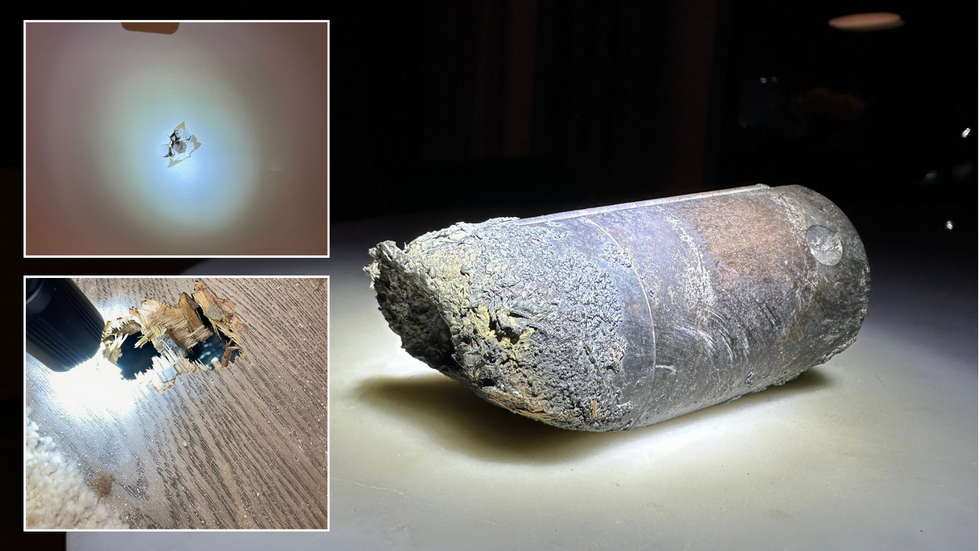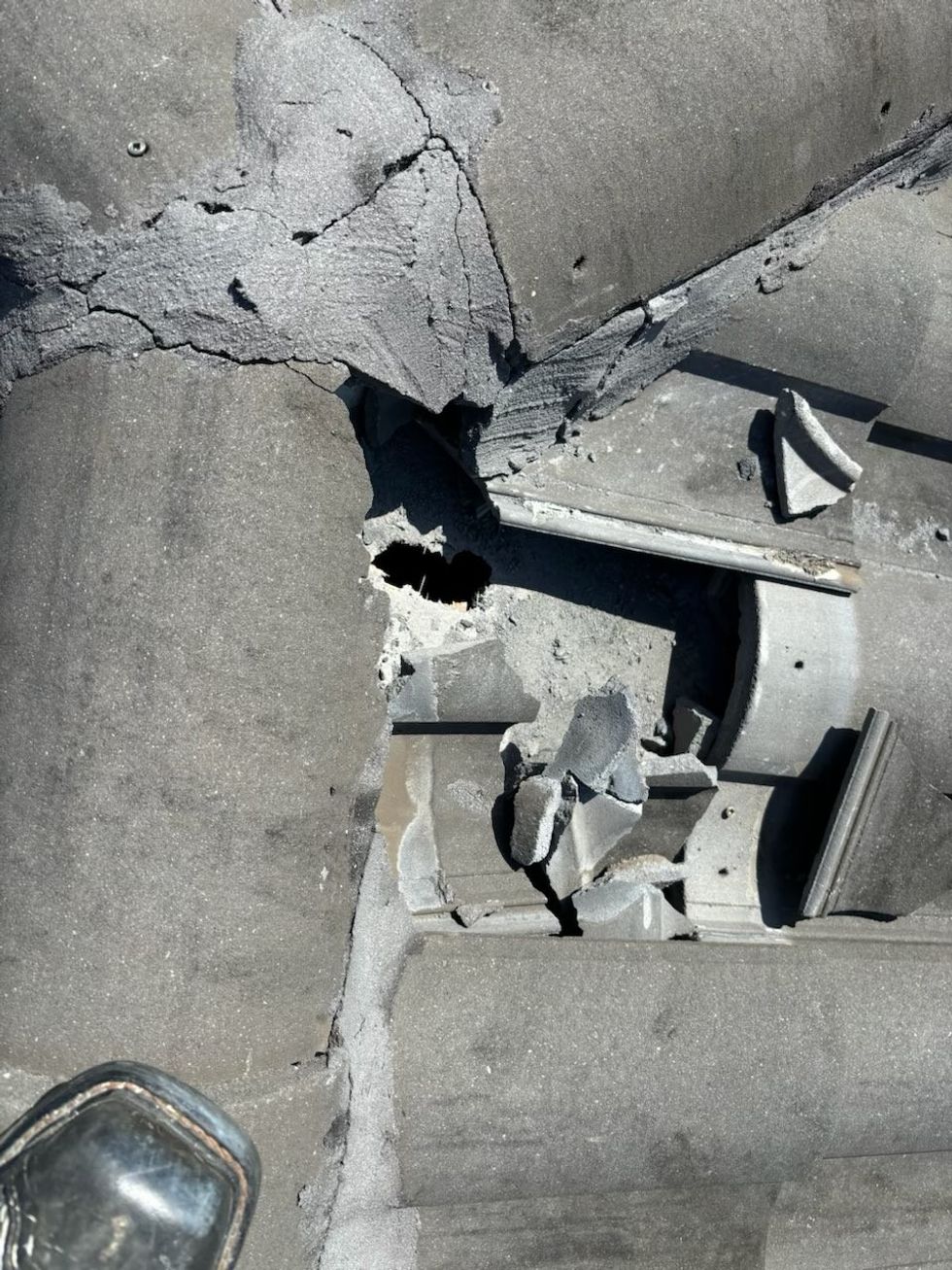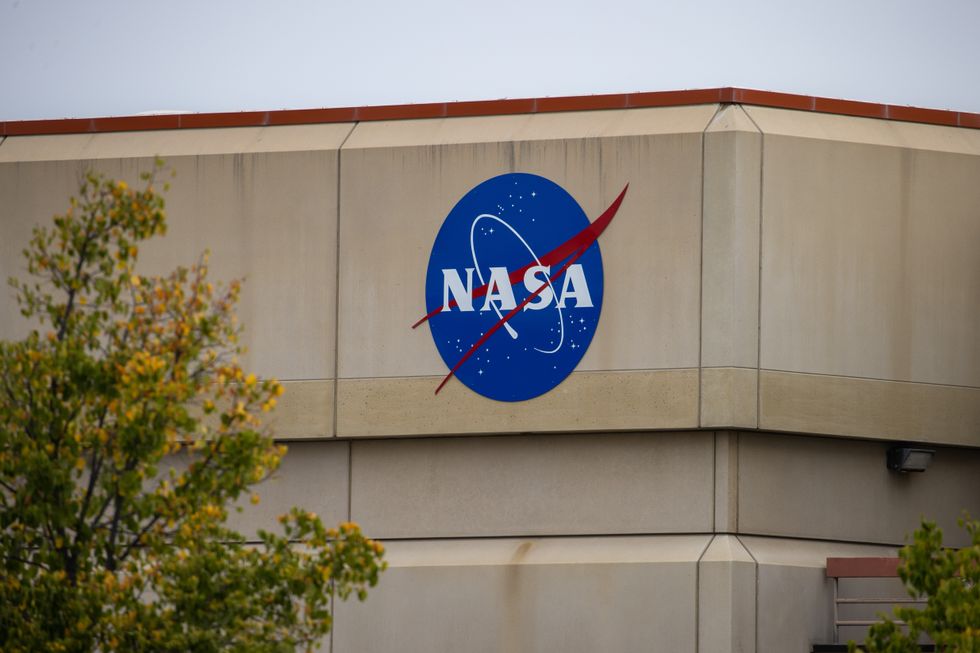The debris is believed to be from a discarded battery pallet jettisoned over Earth in March
Don't Miss
Most Read
Trending on GB News
A piece of space debris believed to be from Nasa’s International Space Station (ISS) crashed through a family’s house, almost hitting the son.
Alejandro Otero, from Florida, said the cylindrical object weighing 5,800 pounds smashed through the roof of his home in Naples.
Sharing the footage online, Otero said: “Looks like one of those pieces… landed in my house in Naples.
“Tore through the roof and went through two floors. Almost hit my son.”

The object almost hit the family's son as it crashed through the roof
Alejandro Otero, X
If the object is discovered to be safe junk, then Nasa could be liable for damages.
“I was shaken, I was completely in disbelief – what are the chances of something landing on my house with such force, to cause so much damage?,” Otero, who was on vacation at the time of the incident, told WINK News.
“Obviously I’m super grateful no one got hurt.”
The debris is believed to be from a discarded EP-9 battery pallet jettisoned from the ISS over Earth early last month.
LATEST DEVELOPMENTS:

Otero's damaged roof due to the object
Alejandro Otero, X
It was supposed to burn up over Fort Myers but instead landed off-course because astronomers had wrongly calculated the time it would re-enter our atmosphere.
Astronomer Jonathan McDowell who had been tracking the re-entry of the debris, said the pallet re-entered on March 9 over the Gulf of Mexico between Cancun and Cuba.
“This was within the previous prediction window but a little to the northeast of the 'most likely' part of the path,” McDowell wrote on X.
“A couple minutes later re-entry and it would have reached Ft Myers.”

Otero said that he tried to contact Nasa about the incident but had not received any response
GettyAnalysis will take place “as soon as possible to determine its origin”, Nasa spokesperson Josh Finch told Ars Technica, a scientific journal.
Otero said that he tried to contact Nasa about the incident but none of his messages had been returned.
However, the matter is complex according to Ars Technica, as the origin of the chunk has not been determined as of yet.
The journal said the batteries were owned by Nasa but attached to a pallet launched by Japanese space agency, Jaza.









